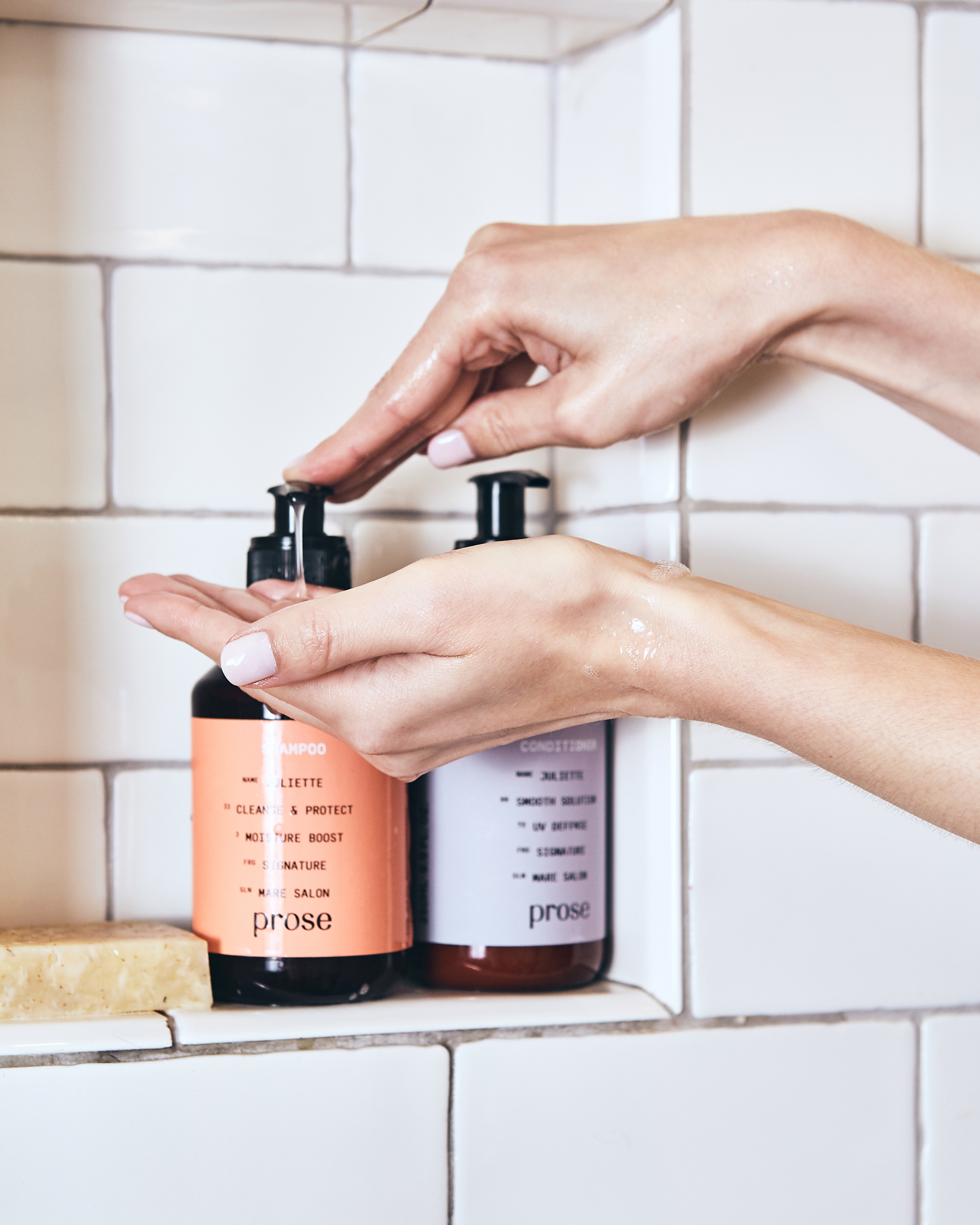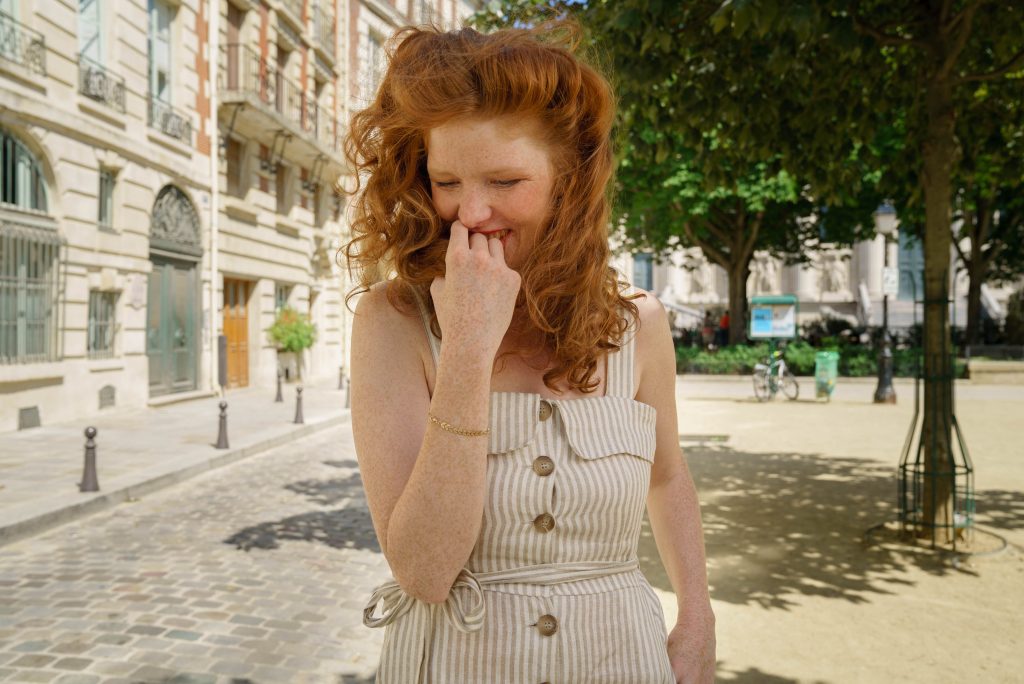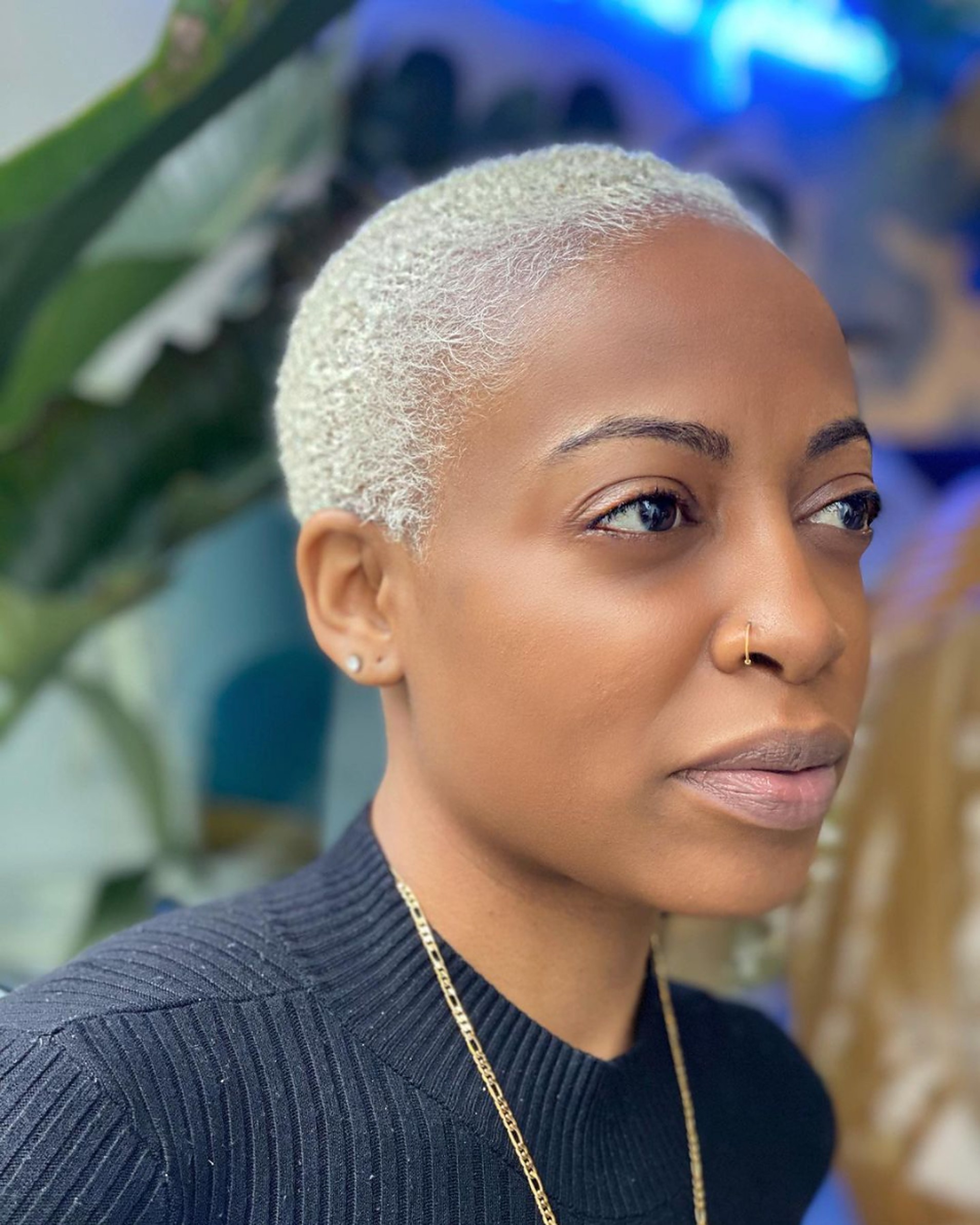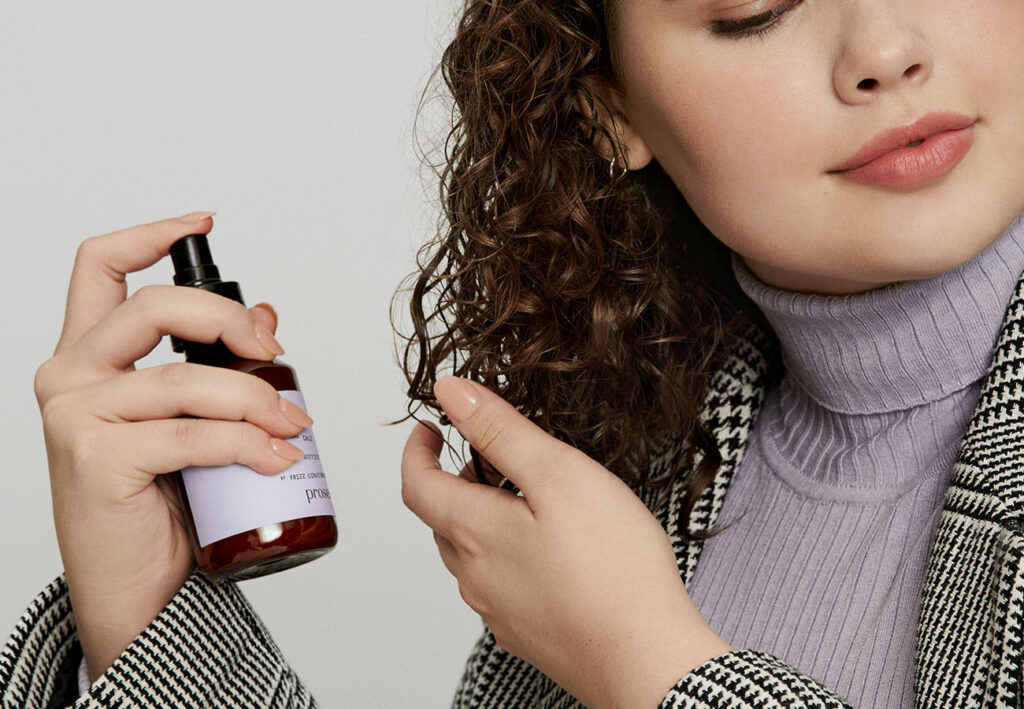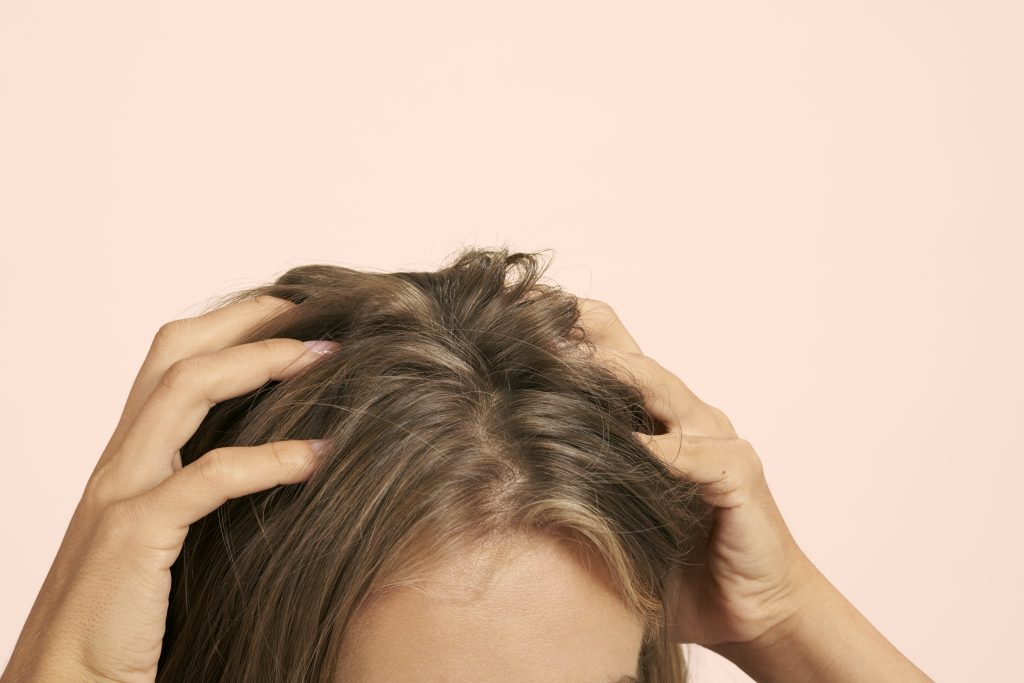Hot and dry
Hot and dry climates, like the southwest, can be super tough on your hair. Each strand is coated with overlapping “scales” that are covered in sebum and protect from damage and help to retain moisture. In hot and dry, both aspects of the climate can damage this protective layer.
Just like blow drying or curling your hair, hot air can have damaging effects on your hair by decreasing its ability to retain moisture. One thing that usually comes with hot air? Sun. UV rays (made up of UVA and UVB) damage hair proteins, lipids and pigments, and make your hair porous, brittle and dull. While both UVA and UVB directly degrade the proteins of the cuticle, UVA radiations can penetrate deep into the strand, amplifying hair damage. UV radiation also does a very strange thing to your hair: inducing the formation of free radicals that cause oxidative stress. Free radicals are molecules with an uneven number of electrons that react to pretty much every other molecule. Antioxidants essentially give up a neuron to free radicals to stabilize them. Cool, right? Jasmin water, karanja oil, and vitamin E are all antioxidants Prose uses to combat this.
If you have UV damaged hair, this also means hair dye will fade faster. Damaged cuticles can’t hold in the color pigment, and the radiation can break down color at a molecular level. Coconut oil, oat lipid and sunflower seed extract are all ingredients in Prose’s arsenal that can be added to your custom formula to fight color fading, both natural and dyed!
Hot and wet
In hot and wet climates, sun and heat damage can still be an issue (see above for the breakdown/remedy), but thankfully it isn’t exacerbated by excessive dry air. However, you’re not completely off the hook. Each climate poses its own unique challenge for your hair and for hot and wet locations, it’s humidity.
Hair is super sensitive to moisture levels in the air. That’s because your hair is composed of strong disulphide bonds which can only be broken by heat or chemical treatments, like perms. The second type of bond in your hair is a hydrogen bond, and they are weaker, and can be changed by water. Hydrogen bonds break and reform every time your hair gets wet. That’s why putting your hair in a bun when it’s wet changes its shape, and wetting your hair can also act as a reset button for your hair shape.
Because humid air carries more water molecules, your hair forms an excessive amount of hydrogen bonds. This is essentially pulling the molecules of your hair in all directions—and voila! Frizz! While healthy hair absorbs and retains about 10 percent of water, damaged or dry hair can absorb more moisture from the air, resulting in even more frizz. So, to fight humidity you need to decrease the amount of moisture you’re absorbing. Your first line of defense is to strengthen the outer protective barrier with nourishing ingredients like argan, sacha yuchi and jojoba oil. Fermented rice water can also be used to smooth frizz. Thankfully, these are all on Prose’s ingredient list and if you’re subject to humid climates, will be added to your formula.
Cold and dry/wet
Cold and dry, like winter in New York, and cold and wet, like Minnesota, are in the same category. This is because they function scientifically as the same kind of climate, and in that case, for our hair. As Dave Phillips, senior climatologist with Environment and Climate Change Canada, says, while hot air can either carry a lot or a little moisture, cold air doesn’t carry water at all. The rule of thumb is that cold air is dry air, but like, really dry. If super dry air wasn’t bad enough, cold air also produces static, which is basically the opposite of humidity. Static hair occurs when hair has gained extra electrons from friction with another object, like a hat or scarf. When there is moisture in the air, the electrons dissipate. But if the air is dry, the electron charged hair repels against each other like north-north magnets.
To minimize the damage of the super cold dry and its evil twin, static, you need to moisturize from the inside out and then lock that moisture in. Humectants are moisturizers that attract water from the air. Prose uses humectants like hyaluronic acid, lilac extract, plant collagen, and glycerin to fill your hair up with moisture. The second step is to lock that moisture in with those nourishing ingredients we mentioned: argan, sacha yuchi and jojoba oil.
But that’s not all that happens from the cold. In cold air, the blood vessels in your skin restrict to preserve heat for your internal organs. This means that in cold climates the blood flow to your scalp could be lacking. Try incorporating a gentle scalp massage in the shower before shampooing. Increasing blood flow means that all those nourishing Prose ingredients we’ve talked about have a higher chance of being absorbed. But you know what? Whatever your climate is, try that massage out. You deserve it!

